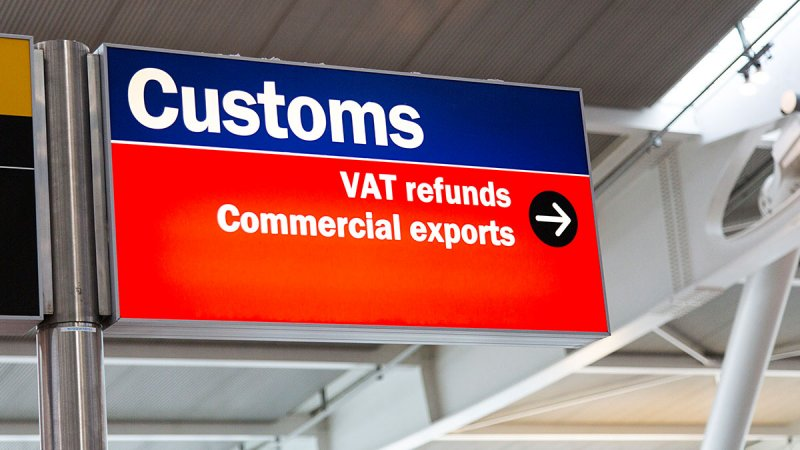Related Courses
If you’re travelling to the UK from the EU, you can bring an unlimited amount of most goods without paying any tax or duty. When you arrive at the UK border, you must declare anything that’s banned or restricted in the UK. It’s important that any goods you bring back are for your personal use. If a customs officer has reason to believe you might be bringing goods into the UK to sell, they may stop you to make checks. If this happens, you should be prepared to explain why you brought the goods, how you paid for them and how often you travel. Whilst there are no limits on the amount of alcohol and tobacco you can bring to the UK from countries in Europe, a customs officer is likely to approach you for questioning if you have over 800 cigarettes, 110 litres of beer, 90 litres of wine or 10 litres of spirits.
There will be no change to the rights and status of EU citizens currently living in the UK until 30th June 2021, or 31st December 2020 if the UK leaves the EU without a deal.
Travelling from outside the EU to the UK
When you travel to the UK from outside the EU, you can bring a certain amount of duty and tax-free goods for your personal use. This is known as your allowance and applies to alcohol, tobacco, perfume, souvenirs and other goods.
The allowance includes:
- Up to one litre of spirits or strong liquors (over 22%) or 2 litres of fortified wine, sparkling wine or any other alcoholic beverage of less than 22%. These allowances can be combined as long as you don’t exceed the total alcohol allowance. You may also bring back 16 litres of beer and 4 litres of still wine.
- 200 cigarettes or 100 cigarillos or 50 cigars or 250g of tobacco. Again, these allowances can be combined as long as you don’t exceed the allowance. You cannot combine alcohol and tobacco allowances.
- A maximum of £390 worth of perfume and souvenirs (this is about 1.5 bottles of Dolce & Gabbana perfume, or 390 fridge magnets). If you go over the allowance you may have to pay tax or duty.
There are no duty-free allowances for tobacco or alcohol if you’re under 17. If it’s for your personal use, you can bring alcohol and tobacco to the UK, however, you will need to pay duty or tax on them at customs. From most countries outside the EU, you are also prohibited from bringing any meat, honey or dairy products as they can carry diseases. Most fruits, vegetables, seeds and bulbs are subject to restrictions.
You must make a declaration to customs if:
- You exceed your allowances. If this happens, you will have to pay Customs Duty. The rate is 2.5% for goods up to £630. If the goods are worth more than £630, the rate varies. You can check by calling the VAT, Customs and Excise Helpline.
- The goods are for commercial use.
- You have 10,000 euros or more (equivalent) in cash. To declare cash, you will need to complete a cash declaration form at the UK airport.
- You think you might have banned or restricted goods.
Businesses transporting goods
International trade is even more heavily regulated for businesses. You may suffer significant penalties if you don’t have the necessary documentation when transporting goods, and they might even be seized by HM Revenue and Customs (HMRC).
You don’t need to declare goods that are of no statistical interest or not restricted. You also don’t usually have to complete an export declaration for goods acquired or dispatched within the EU. However, there are exceptions, such as sales to international organisations which are treated as exports, and exports to special EU territories.

Customs Declaration Services
The declaration of goods arriving by land, air and sea is recorded by the Customs Handling of Import and Export Freight (CHIEF) system. Importers, exporters and freight forwarders can complete customs information electronically, and the system automatically checks for entry errors. The CHIEF connects with Community System Providers, which are independent trade systems. The movement of goods within ports and airports is tracked and recorded, which streamlines the declaration process and makes everything much more efficient when transporting goods.
To make declarations using the CHIEF or Customer Declaration Services (CDS), you’ll need to have an Economic Operator Registration and Identification (EORI) number and a Government Gateway user ID and password. In the UK, an importer or exporter receives their EORI number from HMRC. This EORI number is used to identify you and your shipments across all EU countries. Businesses can submit import, export, transit or pre-arrival declarations by a variety of methods including:
- Community System Providers
- Excise Movement Control System
- Import Control System – this system is provided for goods that require safety and security checks
- New Community Transit System – this is a relatively basic and free to use service, suitable for low volume NCTS users
- National Export System – this system is for traders to submit Export Declarations to the CHIEF system
- Hard copy declarations – You can submit manually completed customs declarations to HMRC
The Integrated Tariff of the UK (the Tariff) is the official HMRC guide to importing and exporting taxes and duty. The Tariff contains the codes and customs requirements you need. You can also set up an email alert from the EU’s TARIC database to say up to date with any changes regarding the Tariff or customs declaration system. You can also input your item’s commodity code into the UK Trade Tariff to quickly identify the relevant licences and certificates that are necessary for your goods.
Customs Declaration Forms
A customs declaration form lists the details of goods that are being imported or exported when a citizen or visitor enters a country’s borders. Common customs declaration forms include an export declaration and certificate of origin. These documents help customs to know what goods are being shipped, whether there are any import quotas, customs or excise taxes, other tariffs or duties to be paid and whether any goods are banned from entry. Goods cannot be exported without an export declaration.
Why are custom declarations important?
As goods can affect a country’s economy, security and environment, declaration forms were implemented to help customs control what is imported into the country. The export and import of goods can seem like a lengthy process, but the various procedures are important in keeping people safe. Customs declaration forms are also important to help traders identify any taxes they need to pay, as well as check whether any of their exports are banned. Therefore, by being thorough throughout the entire customs declarations process, you can avoid any extra taxes or fines.

